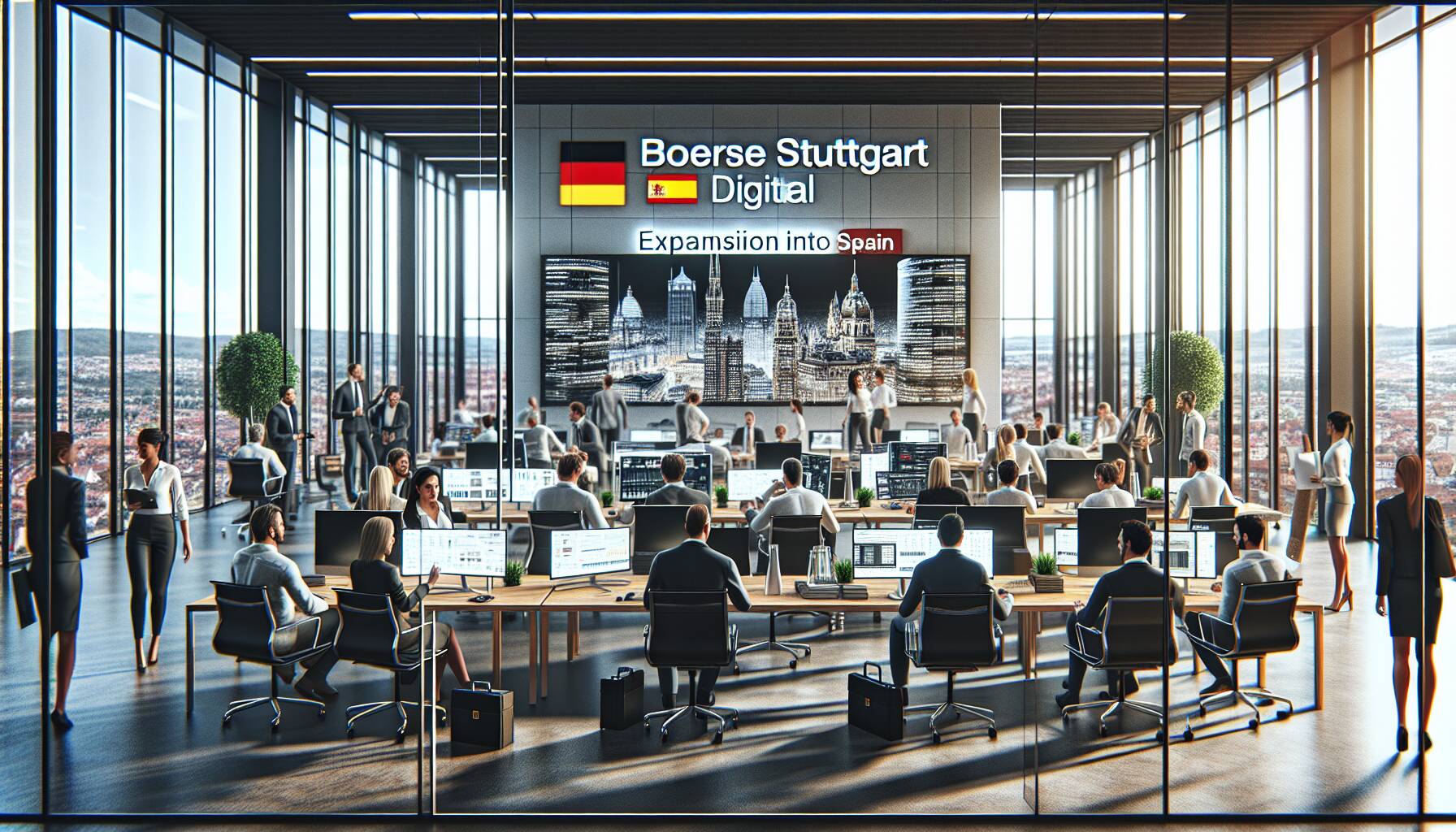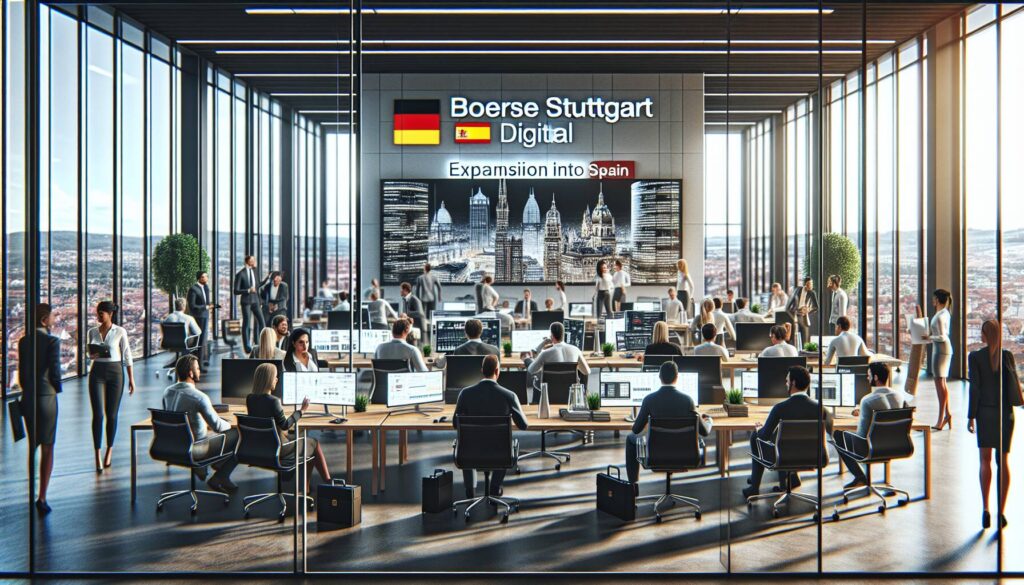Boerse Stuttgart Digital, the cryptocurrency division of the Stuttgart Stock Exchange Group, has officially launched its operations in Spain, opening a new office in Madrid. This strategic expansion marks a significant milestone, elevating the company’s presence to eight key European locations including major financial hubs like Frankfurt, Zurich, and Milan.
The move follows Boerse Stuttgart Digital’s achievement of the pioneering Europe-wide MiCAR license earlier this year, granted by Germany’s BaFin regulator. This license allows the company to offer a range of crypto trading and custody solutions tailored specifically for banks, brokers, and asset managers. Their innovative, modular platform is designed to help financial institutions seamlessly integrate cryptocurrency services into their retail operations, all while adhering to the stringent compliance demands of the European Union’s new Markets in Crypto-Assets (MiCAR) framework.
“Spain with its high-performing, innovative banks is a core market for us,” said Dr. Matthias Voelkel, CEO of Boerse Stuttgart Group. “We are already engaged in advanced collaboration discussions with key players.”
As interest in digital assets continues to soar in Spain, market research indicates that over half of the population could potentially embrace cryptocurrencies by 2025. This presents a valuable opportunity for financial firms eager to cater to rising client demand for regulated crypto access, particularly as Boerse Stuttgart Digital is currently in talks with several major Spanish banks to explore potential partnerships.

Boerse Stuttgart Digital Expands into Spain
This expansion presents significant implications for the European crypto market and reflects growing trends in digital asset adoption.
- New Office in Madrid:
- Boerse Stuttgart Digital has established a presence in Spain.
- This is part of their strategy to expand to eight European hubs.
- First MiCAR License:
- Received the first Europe-wide MiCAR license from BaFin.
- This ensures compliance with new EU regulations on crypto assets.
- Services for Financial Institutions:
- Provides crypto trading and custody solutions for banks, brokers, and asset managers.
- Offers a modular platform for integration of cryptocurrency services.
- Increasing Demand in Spain:
- Market studies predict over 50% of the Spanish population may adopt cryptocurrencies by 2025.
- This growth potential is attracting financial firms to explore opportunities in the Spanish market.
- Collaborations with Spanish Banks:
- Engaging in discussions with major banks for regulated crypto access.
- Impulse for innovation in the banking sector and meets client demand for crypto services.
Boerse Stuttgart Digital Expands Its Presence in Spain: A Strategic Move in the Crypto Market
Boerse Stuttgart Digital’s recent expansion into Spain marks a significant shift in the European cryptocurrency landscape. This move positions the firm to capitalize on Spain’s growing interest in digital assets, where recent market analyses indicate that over 50% of the population might embrace cryptocurrencies by 2025. In comparison, other European competitors, such as Binance and Coinbase, have also targeted Spanish audiences but are met with regulatory challenges that can slow down growth and service integration.
The company’s acquisition of the MiCAR license from BaFin highlights its compliance focus, which can be seen as a competitive advantage. In contrast, firms operating in nations without such clear regulatory frameworks may face hurdles in instilling trust among potential users. By providing a modular platform that integrates easily with existing banking systems, Boerse Stuttgart Digital is uniquely positioned to attract banks, brokers, and asset managers eager to offer cryptocurrency services—all while adhering to the EU’s evolving regulatory landscape.
However, while the entrance into Spain creates promising opportunities, it could also yield challenges. Established players in the financial sector may view Boerse Stuttgart Digital’s rapid expansion as a threat, potentially leading to stiff competition. Additionally, if collaboration discussions with Spanish banks fail to materialize as expected, the firm may find itself at a disadvantage compared to those who’ve already secured partnerships and built trust in the local market.
Overall, this development could greatly benefit local financial institutions looking to diversify their offerings, appealing to tech-savvy customers demanding innovative solutions. On the flip side, it may pose problems for traditional investment firms that are slower to adapt to the digital asset wave, limiting their ability to compete effectively amidst evolving client expectations.
















